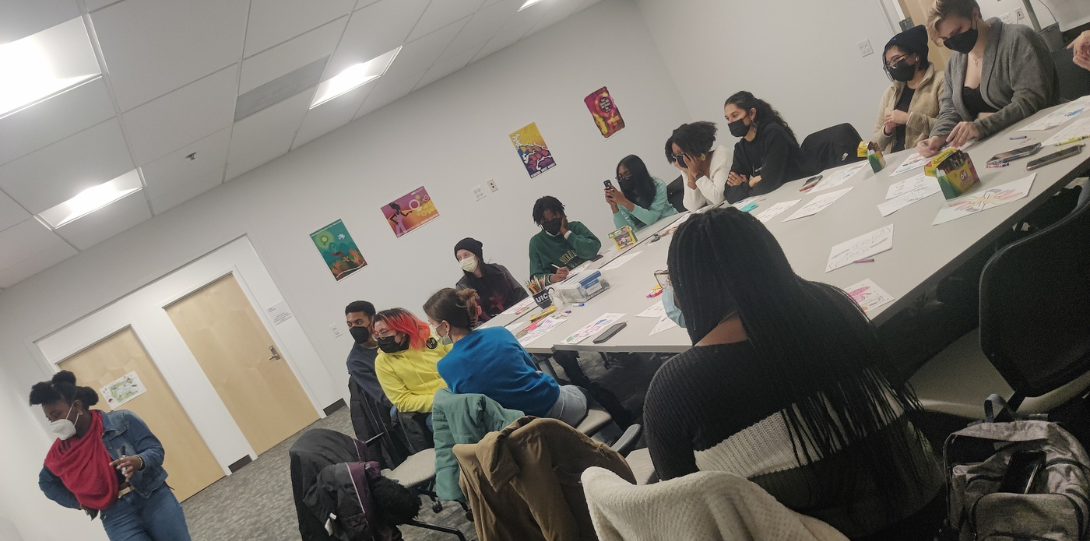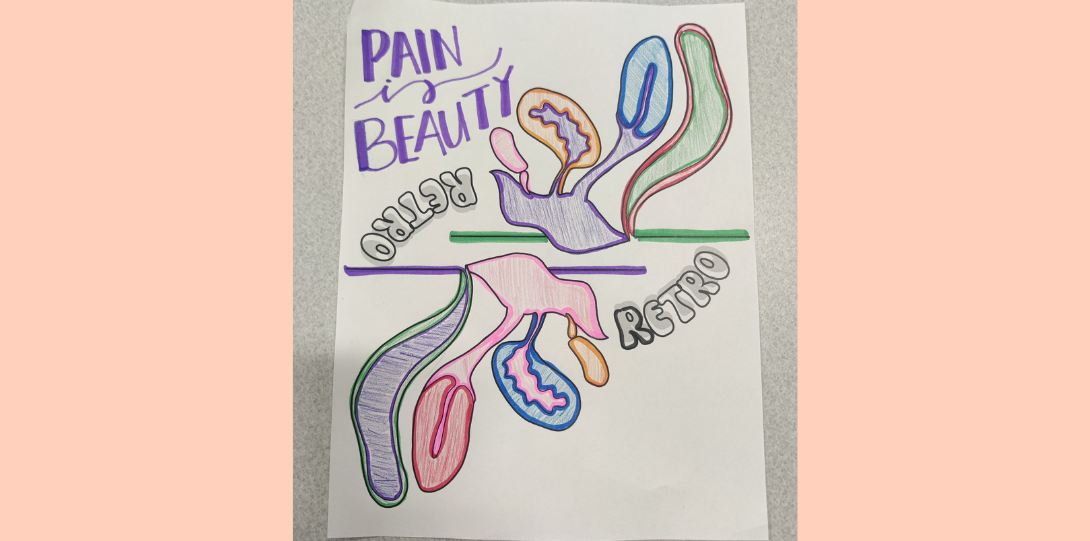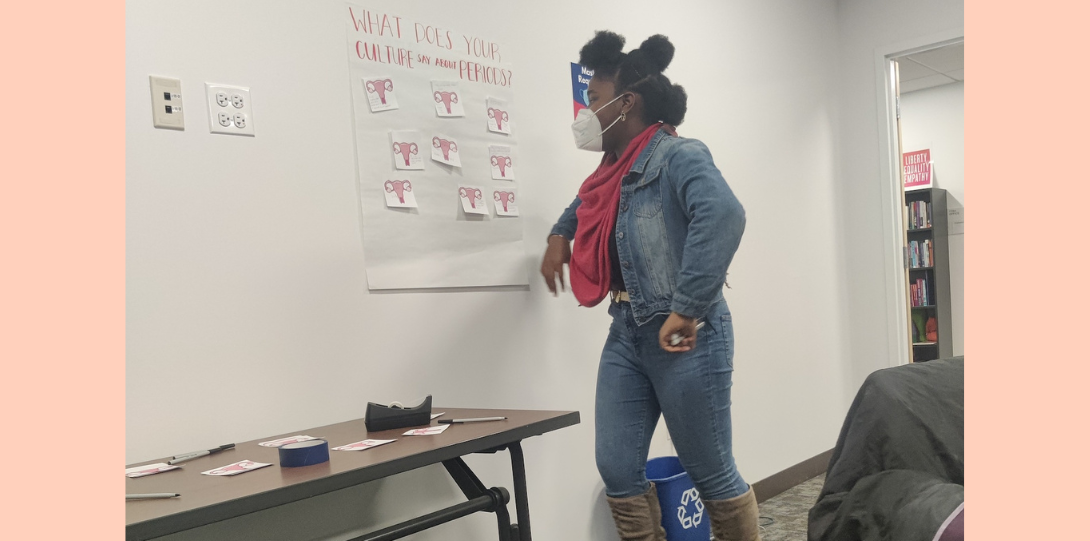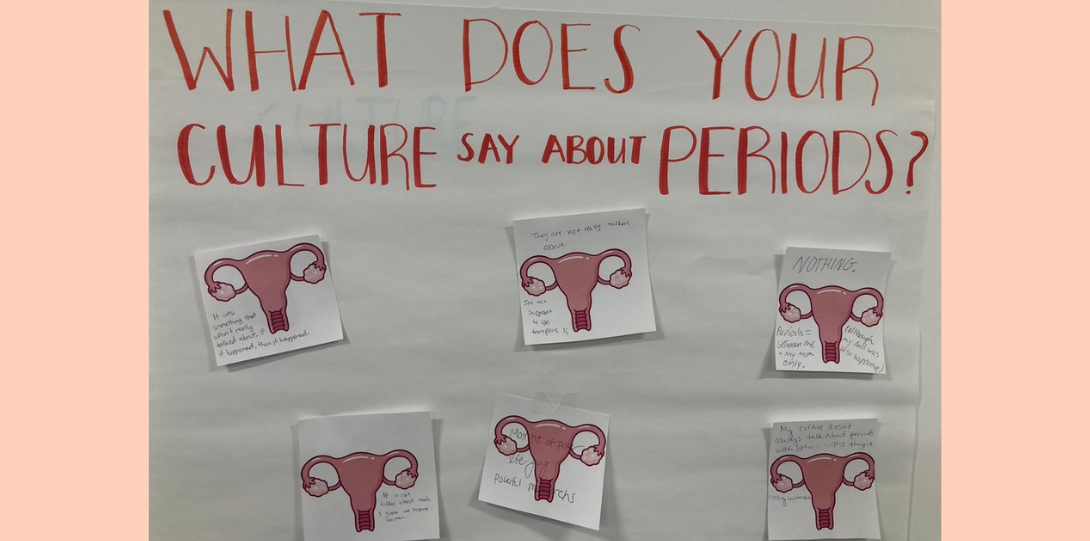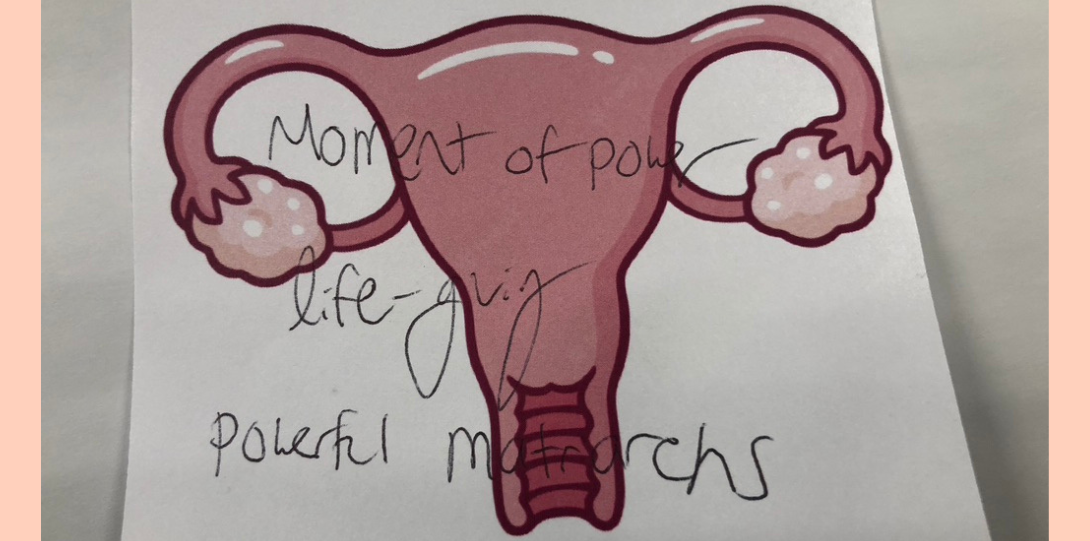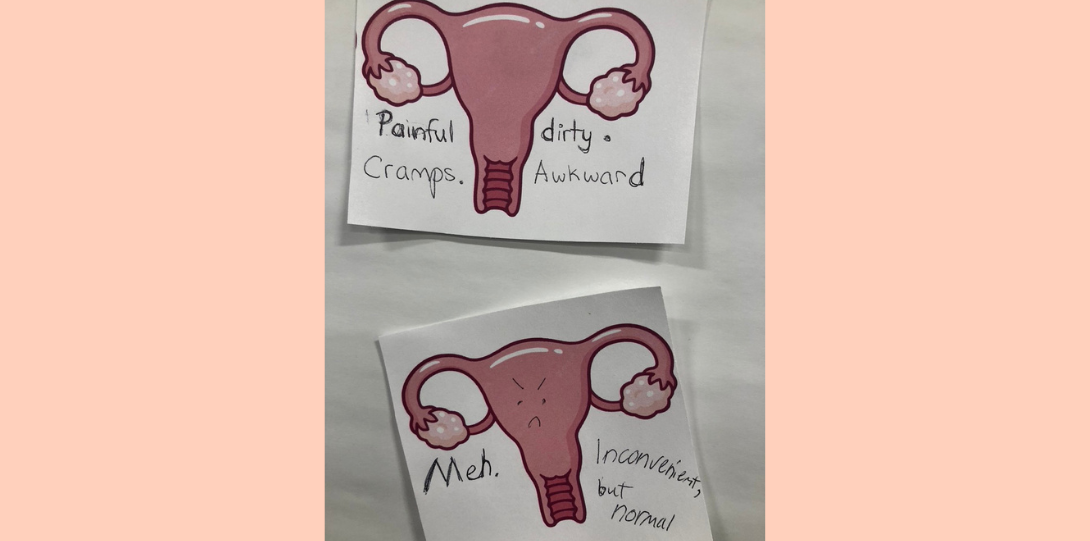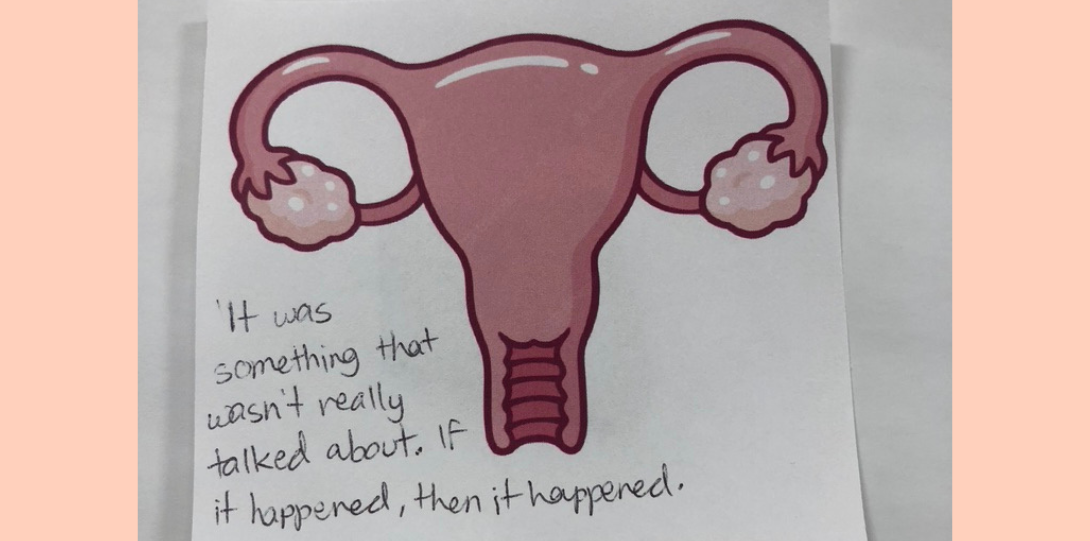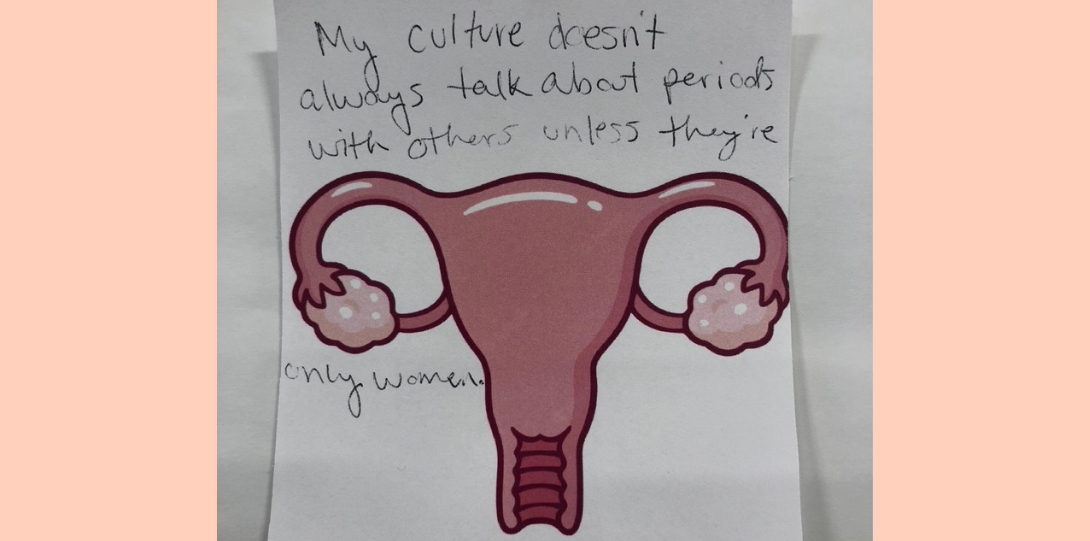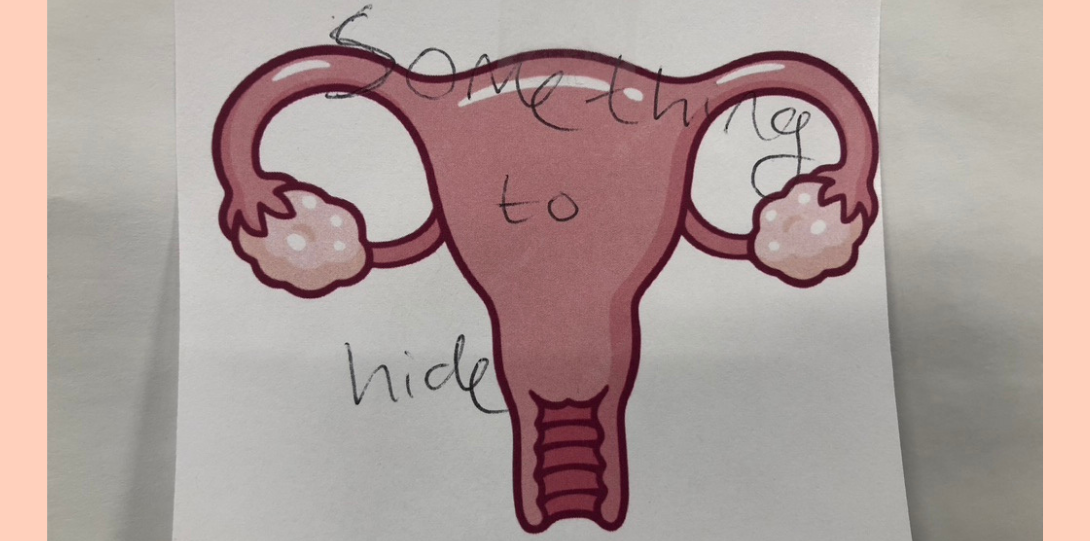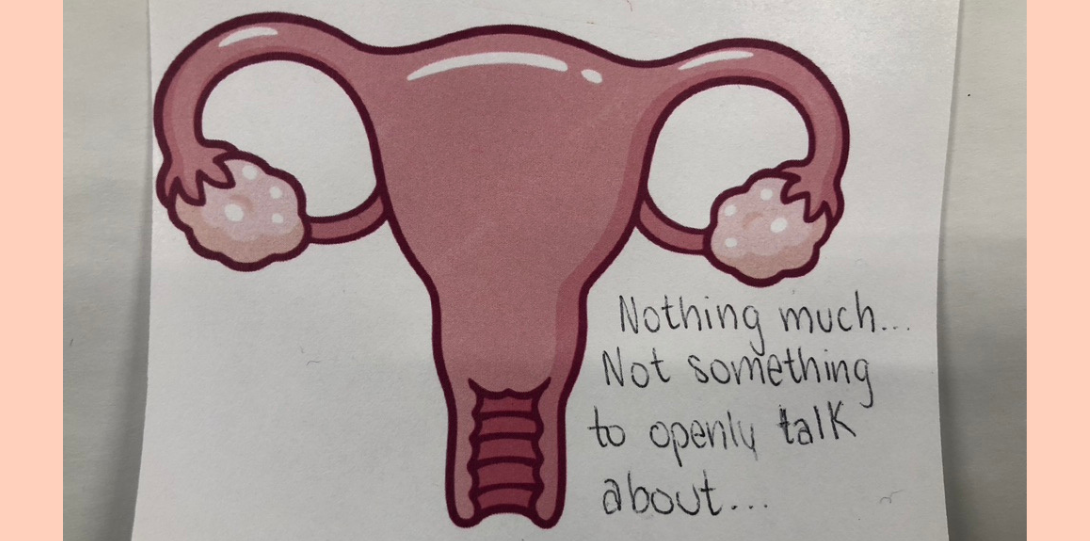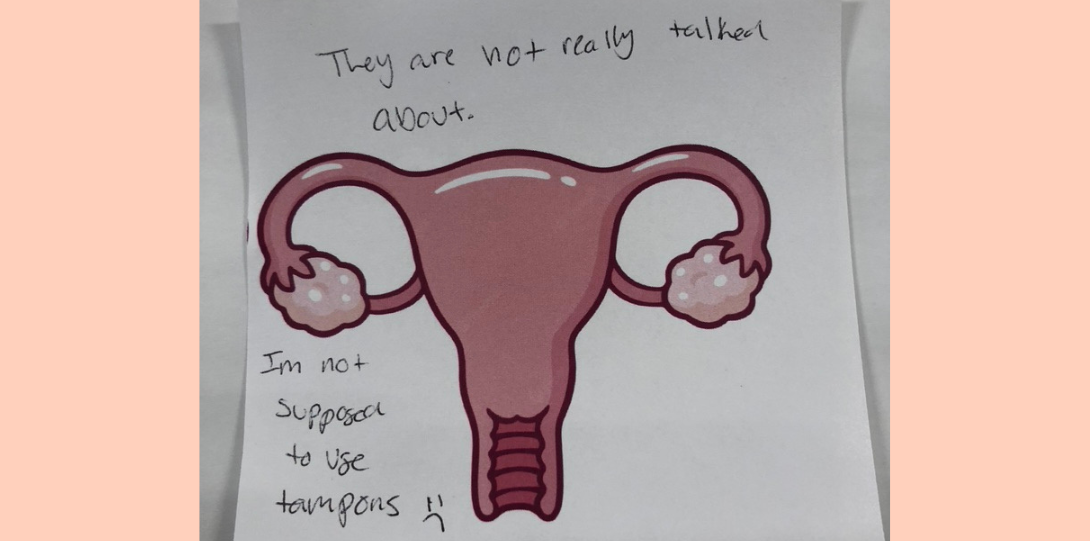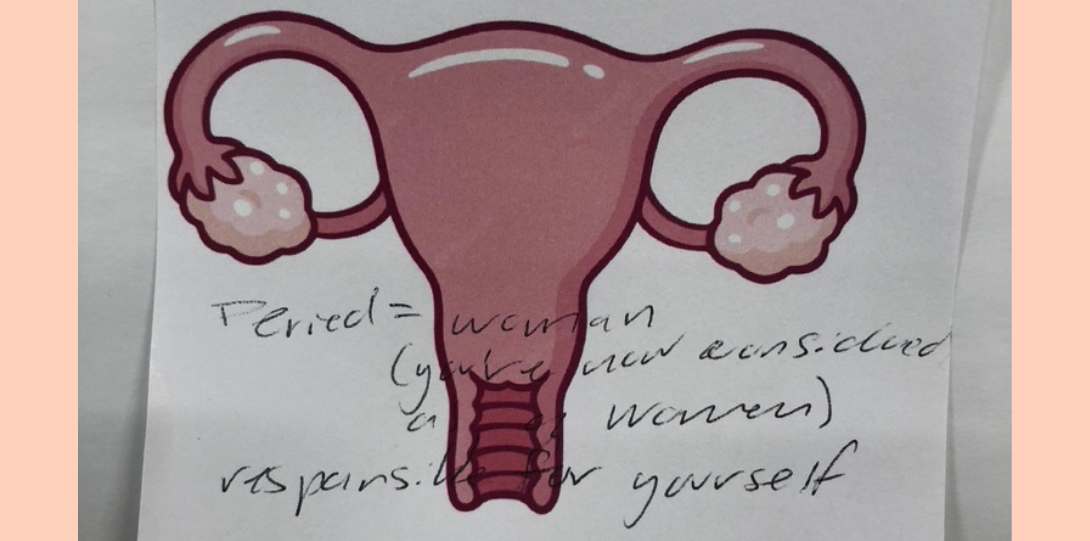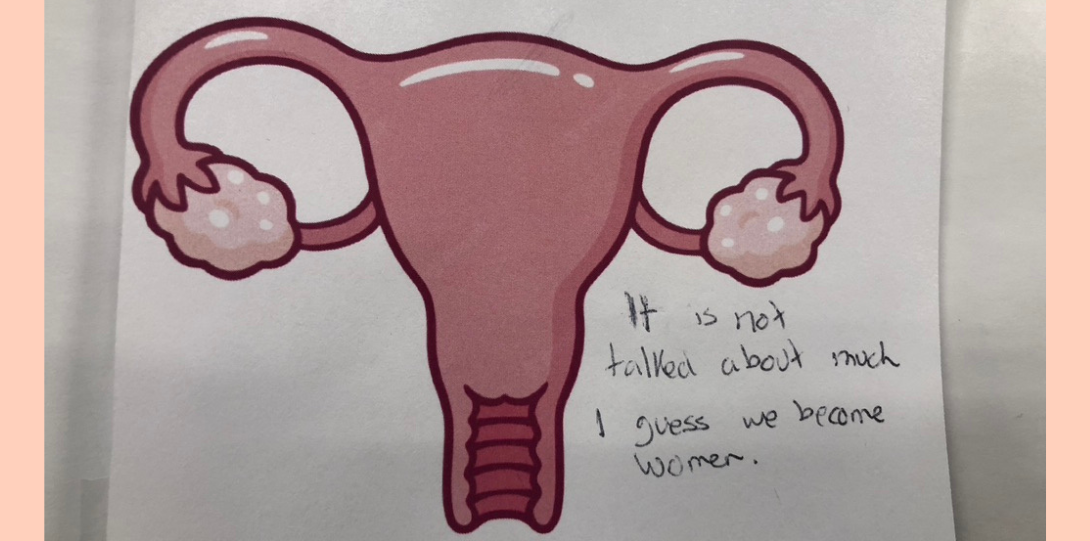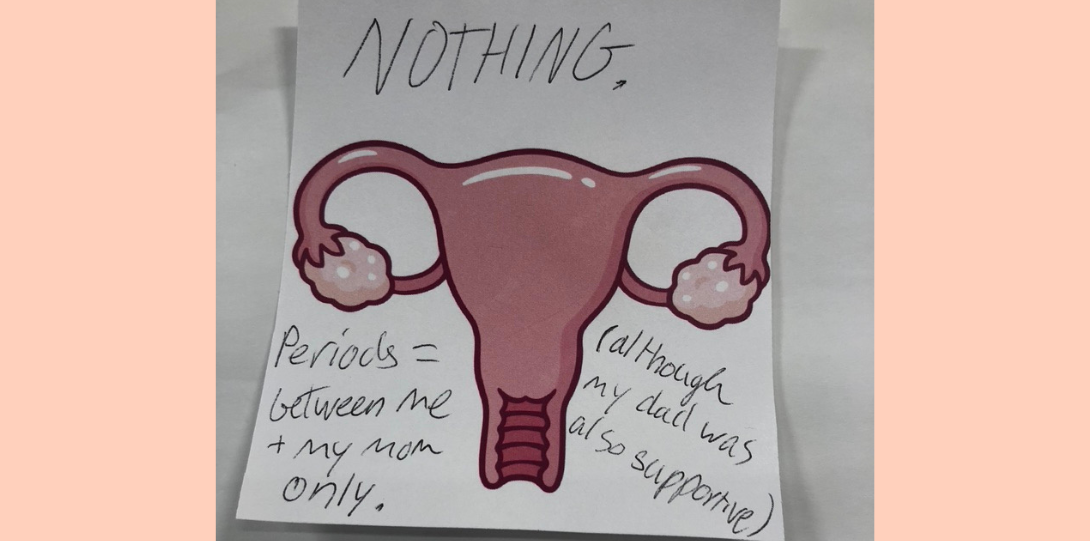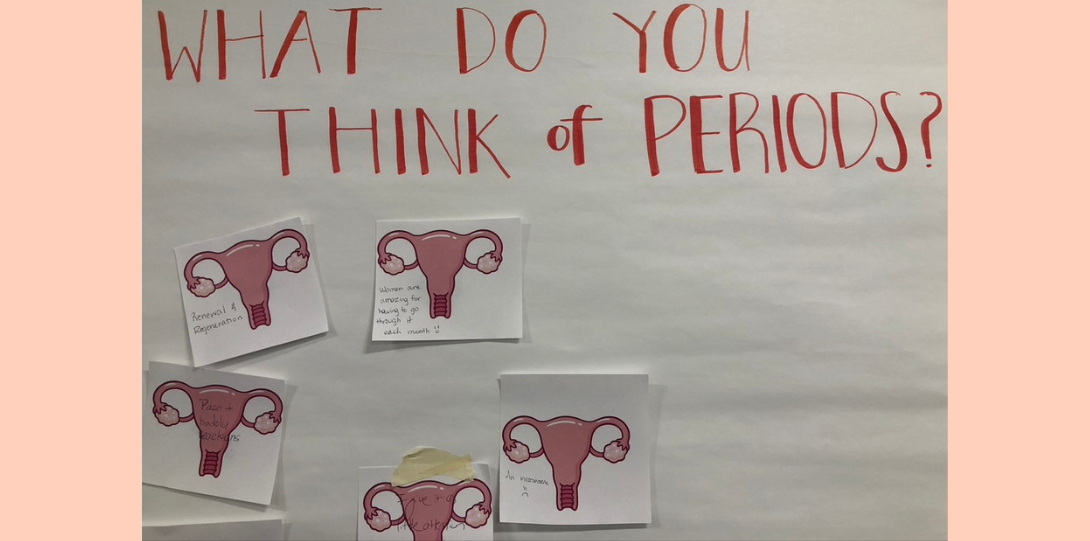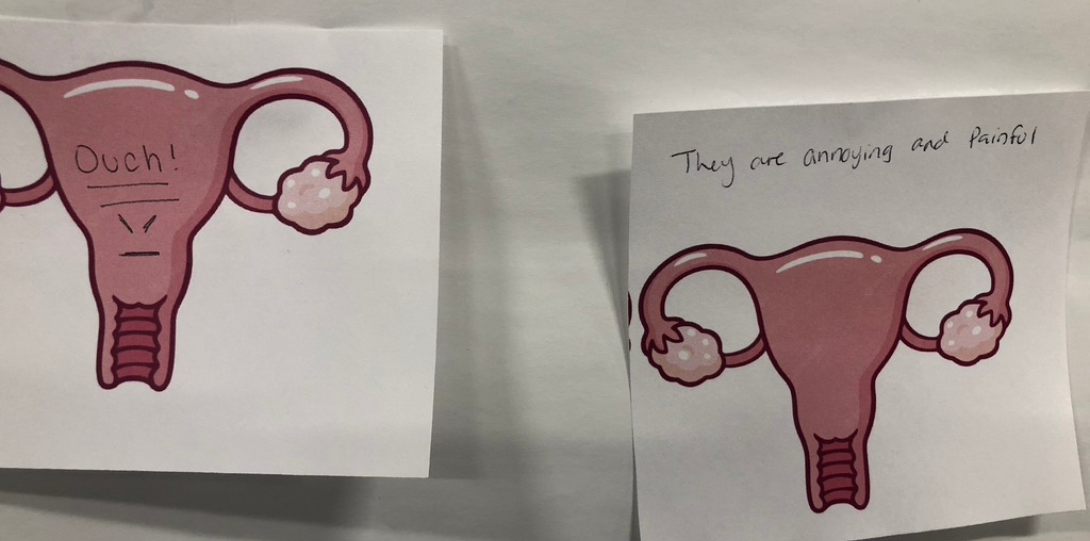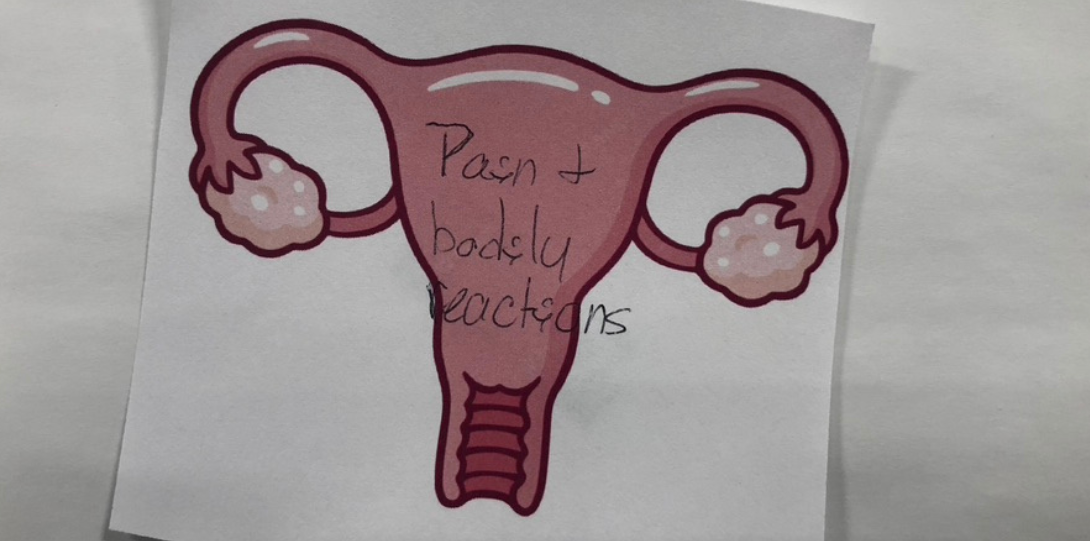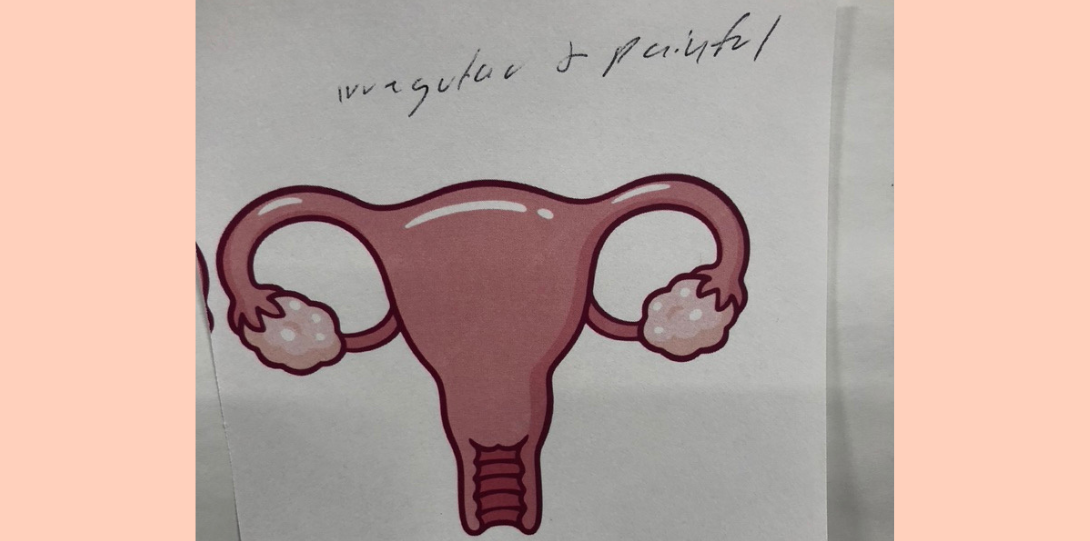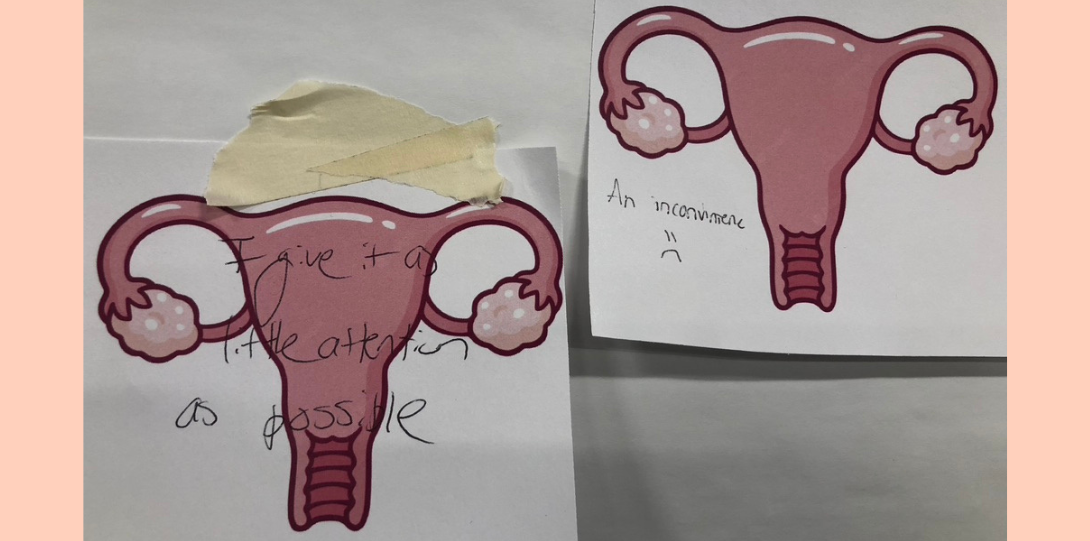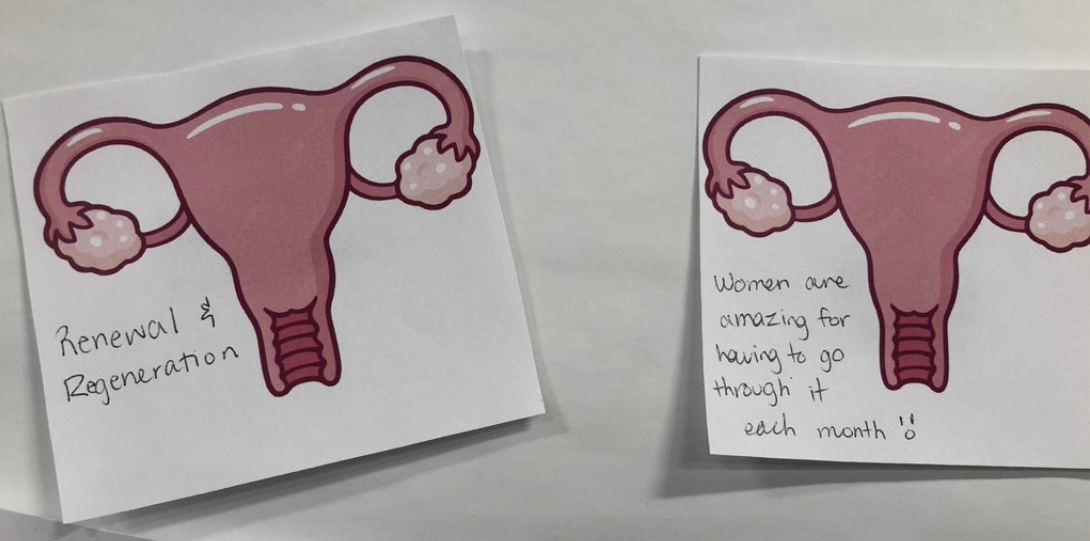My Period, My Culture. Recap
Intro Heading link
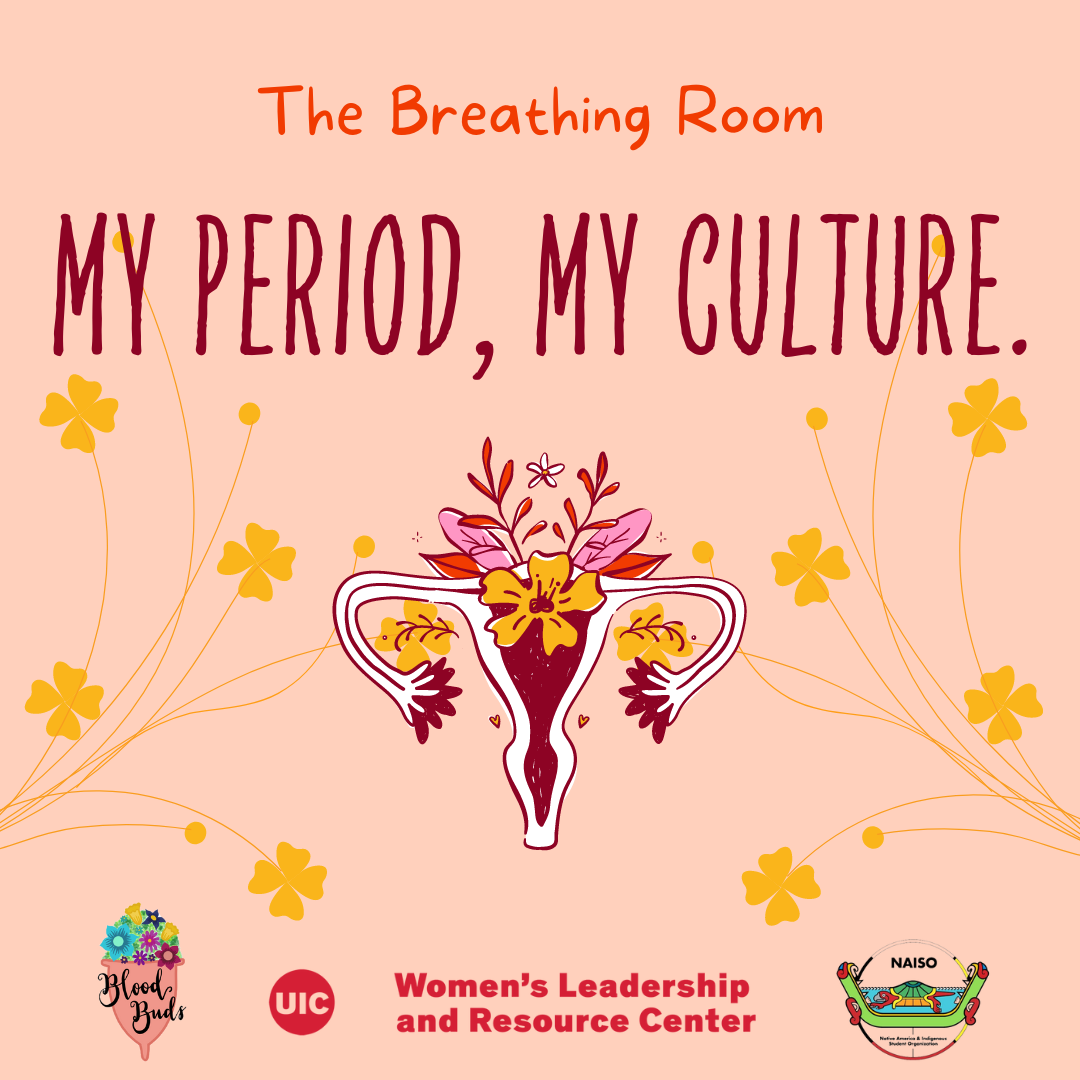
On Tuesday, November 15, we hosted “The Breathing Room: My Period, My Culture.” in collaboration with two student organizations, Blood Buds and the Native American Indigenous Student Organization. As a group, we discussed menstrual health and our personal experiences with periods. Our participants shared many valuable stories, all relating to different cultures we ascribe to, such as religious, ethnic, political, medicinal, and social cultures. We addressed stigmas in Western society, while also celebrating cultures that lift menstruators up instead of silencing them. Together we found that periods are nothing to be ashamed of, and that if we continue to share our stories, we can form a community that can’t be silenced.
To continue the conversation, we asked two questions in our weekly newsletter prompt:
How were you educated about menstrual cycles? What do you wish you were taught about sooner?
Our readers had plenty of thoughts and stories to share! Keep scrolling to read their responses and view images from the event…
How were you educated about menstrual cycles? Heading link
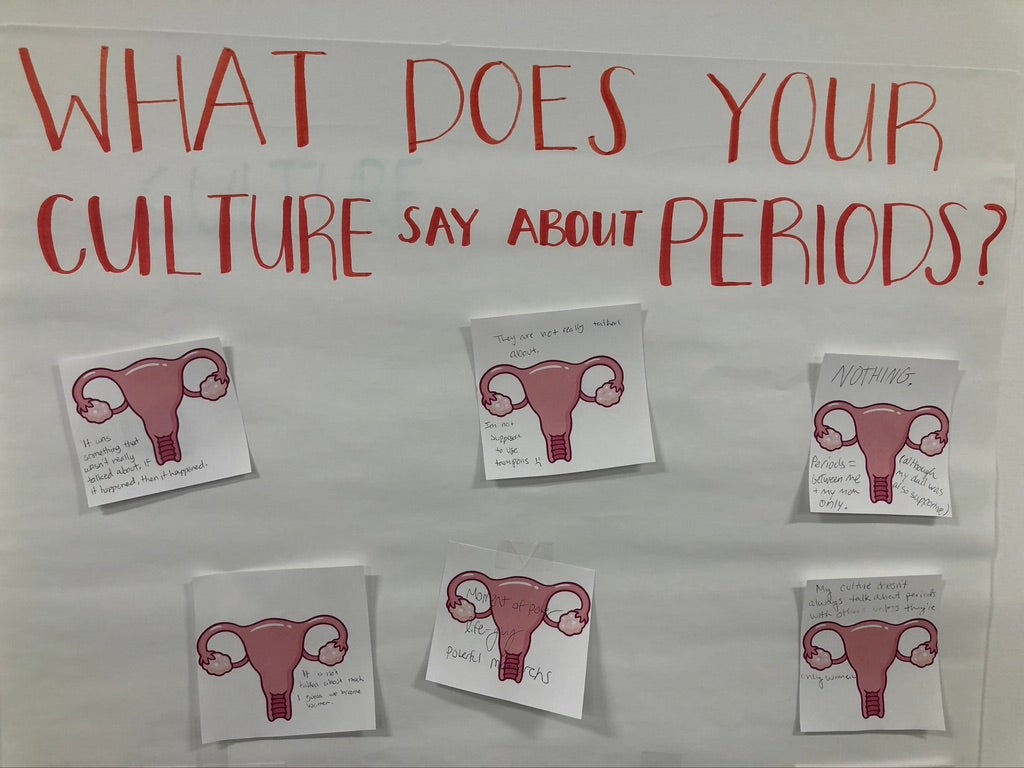
“I was actually very lucky to have a combination of formal and informal/personal education on menstrual cycles. My mom was very open with me about what periods were, what products to use as I was starting/what other products existed, how to keep clean, and what a period is. Whenever I had questions on anything regarding my body or changes, my mom was always open to listening, giving me advice/tips, and explaining what she knew. I always valued her input and am always grateful for her, especially considering that she’s a Mexican immigrant mom, so I know other girls in similar backgrounds had issues with talking about it with their own moms. My mom told me that my grandma didn’t really explain menstrual cycles to her, so she wanted to break that taboo cycle with me.
Apart from this, in 5th grade we had a special field trip to a museum or special class of some kind where we learned about the basics of the reproductive system. We learned what menstrual cycles were, what side effects or changes came with getting your menstrual cycle, what products you could use, etc. It was a nice overview and introduction for us, though by that age many girls had already started their period. That class, however, was also great in that it taught us to not feel ashamed for the natural changes in your body, and how to deal with/understand the bodily and emotional changes that came with growing up.
In 6th grade and my freshman year of high school, our health classes went over (very briefly) the reproductive system and what periods are but did not dig deeper into any other things. I further educated myself through my own research, and questions I’ve asked my doctor or gyno on how to use other period products, such as menstrual cups, and what other things, such as discharge or irregular periods, could mean. Overall, it’s been a long educational journey that really never ends, as I am still learning new things about my own menstrual cycle.”
More answers Heading link
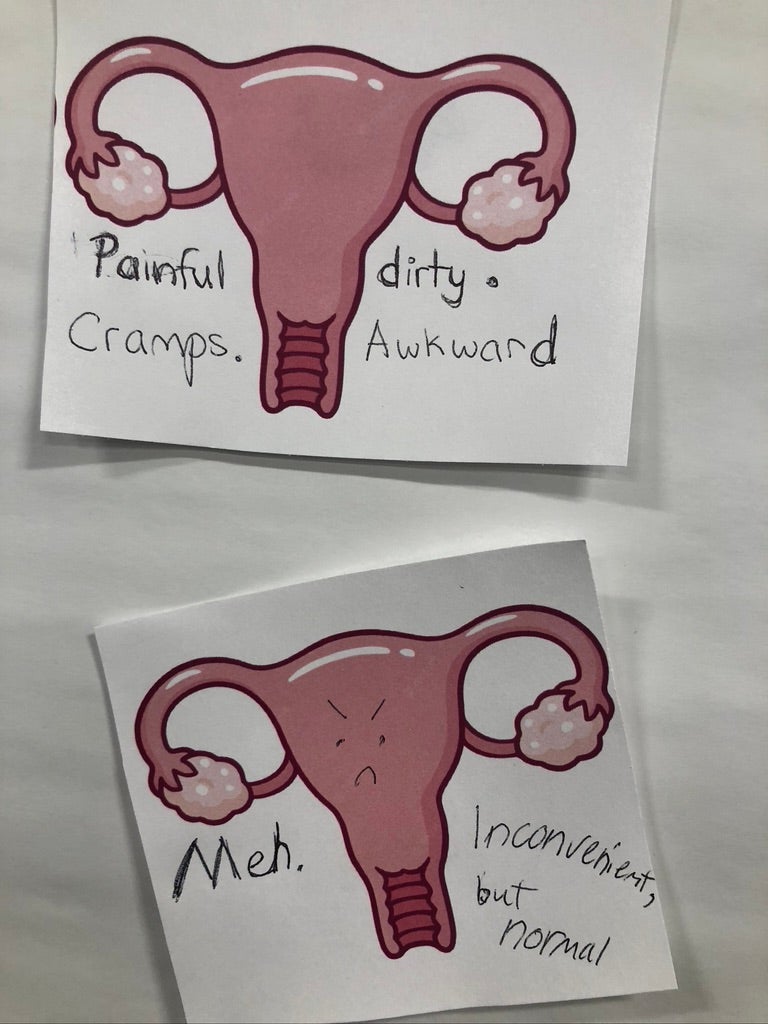
“I was never educated about menstrual cycles until after I got my first period. I got my first period when I was 9, so my mom was in shock for a while. She was not prepared to give a 9-year-old the ‘period talk,’ so I never understood what was going on with my body. I didn’t even know what a period was when I got it, so I thought I was peeing cranberry juice (I had an unhealthy obsession with cranberry juice as a kid). When I told her that there was red stuff in my underwear, she simply told me I was going to get this every month, here is a pad, and don’t tell anybody when you are on it. I was still very confused, but I followed her instructions. I took it upon myself to do some research on what this phenomenon was. I would stay up watching YouTube videos and reading WikiHow articles on what a period was. I ended up having a thorough understanding of women’s anatomy and the menstrual cycle, so at the age of 9 I became an expert on anything period.”“I have 3 older sisters. No one quite educated me, but since I grew up hearing about menstruation, I sort of picked up on what to do.”
“Public school health class almost exclusively, and Seventeen/YM (’90s teen magazines).”
“In 5th grade, a woman came to talk to us about it and showed us how to use a pad.”
“From school events/health classes/conversations with peers.”
“My mom educated me with a couple of books written on the subject.”
“Middle school science class and a field trip with educational video.”
“My older sister showed me the basics; I learned the rest through school/friends.”
“I was educated in health classes but the given information was really vague and sugar-coated most of the information.”
What do you wish you were taught sooner? Heading link
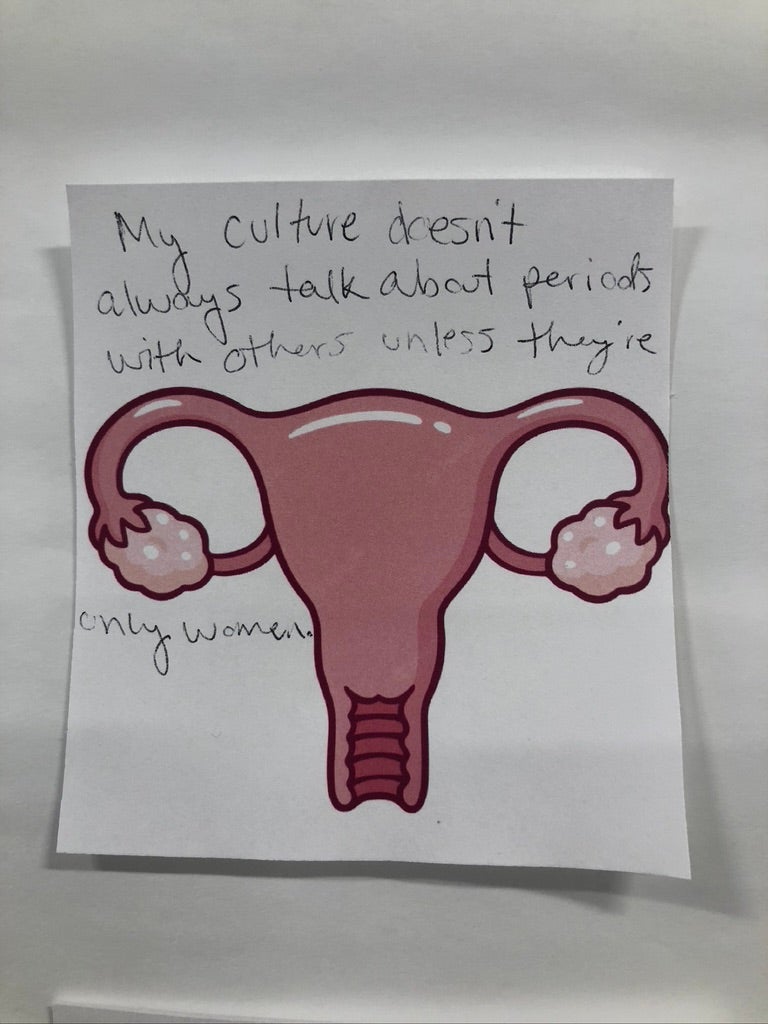
“I wish that I was not taught to keep it a secret. I felt so weird as a kid that many other girls knew what a period was, but my mom made me feel like it was a bad thing, even though it’s a natural process for all women. I wish in school when we would have the very watered-down sex talks, they would talk about the menstrual cycles so young girls would know what was coming, and also to help guys have an understanding, too. I would have also liked to know the science behind the menstrual cycle. The hormones involved for women are very important to understand how different women are physically from men, and high school anatomy classes barely touch on them, let alone elementary to high school. Talking about periods needs to be normalized because they are just that–normal.”
“I wish my parents gave me accurate information about periods before school began discussing them since there were many misconceptions.”
“The different types of period products outside of tampons and pads. How to deal with ‘accidents’ or ‘unexpected’ periods. To always carry a little emergency bag or stash of period products and change of clothes (at least underwear!! I learned this the hard way since my period is SUPER irregular and has been that way almost since I’ve had it). What irregular periods are. What exactly is discharge? What are the different types of oral contraceptives and how do they impact your menstrual cycle? What PCOS is and what other things/conditions/states of health can impact your menstrual cycle.”
“Actual options for different period products. The cycle got discussed but not the practical stuff! When I was a kid I taped pantyliners directly to myself.”
More answers Heading link
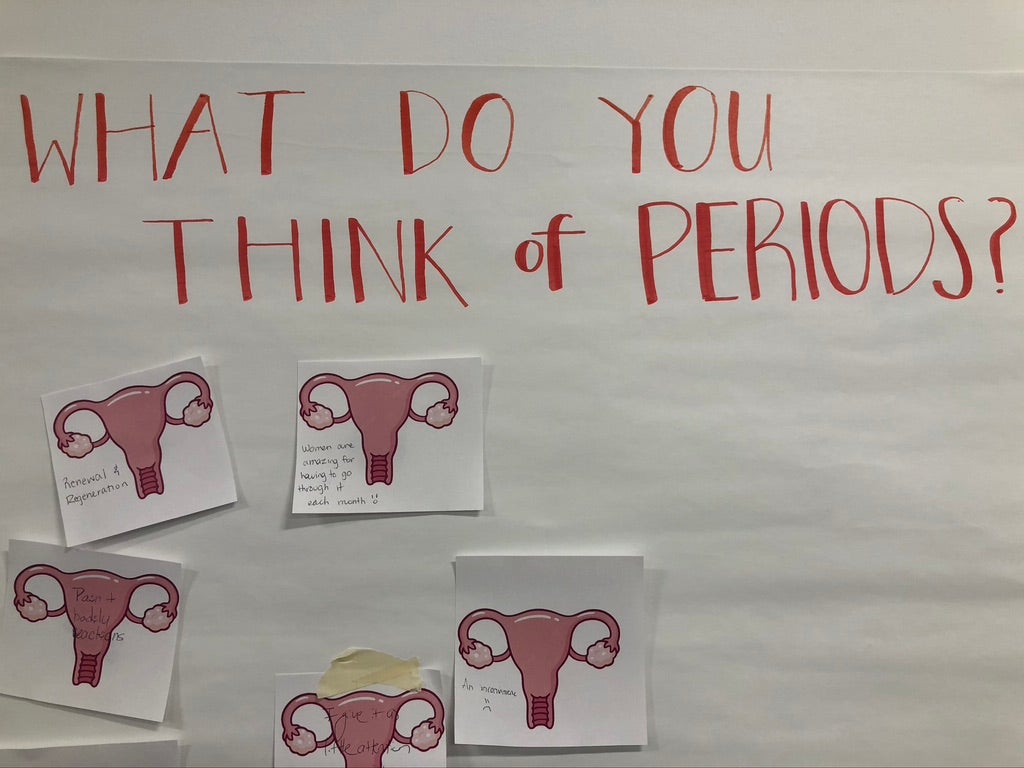
“When to go to doctor about it and also how to keep track of it.”
“I wish they taught us what pain and symptoms aren’t normal.”
“I wish I knew that even if you don’t start out having cramps, they can come later.”
“That there is research on a woman’s exercise schedule benefiting [her] if arranged according to menstrual cycle.”
“Yes, it would have been nice to know more before I had my first period, but I enjoyed the learning process and figuring out what works for me and my body.”
“I wish I was taught about all the parts of periods, like not just the bleeding but what happens before and after.”
